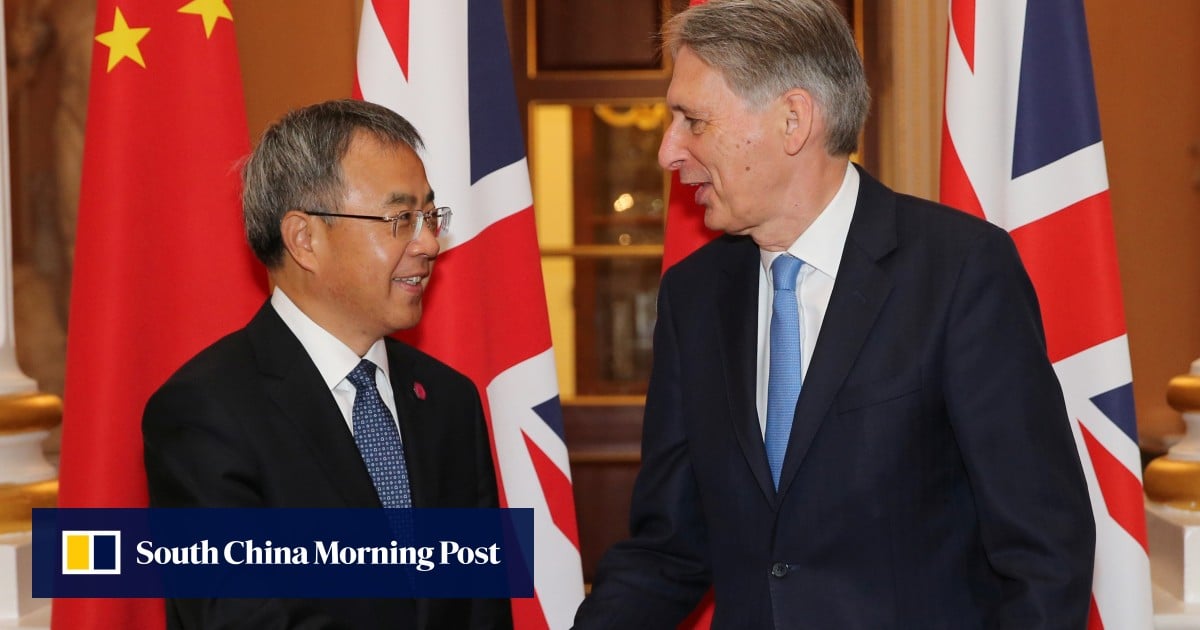Trump's Britain Trade Deal: What To Expect

Table of Contents
Potential Benefits of a US-UK Trade Deal
A comprehensive US-UK trade agreement offers substantial potential benefits for both nations. The prospect of a strengthened trade relationship, built upon a foundation of shared values and economic interests, has the potential to unlock unprecedented opportunities for growth and cooperation.
Increased Trade Volume & Economic Growth
- Significant increase in bilateral trade: Experts predict a substantial boost in trade volumes, particularly in sectors like British agricultural exports (e.g., Scotch whisky, cheese) gaining greater access to the vast US market. Conversely, the US could see increased exports of manufactured goods and technology to the UK.
- Growth in specific sectors: The automotive and pharmaceutical industries stand to benefit significantly from reduced tariffs and streamlined regulations.
- Positive GDP impact: Studies suggest a potential increase in GDP for both the UK and the US, although the precise figures vary depending on the scope of the agreement. Improved economic indicators, such as increased employment and investment, are also anticipated. A 2021 study by the Centre for Economic Policy Research estimated a potential boost to UK GDP, though the figures are contested and dependent on the final agreement.
Reduced Tariffs and Trade Barriers
A key advantage of a successful US-UK trade deal lies in the reduction or elimination of tariffs and trade barriers.
- Lower consumer prices: Reduced tariffs on various goods and services will likely translate to lower prices for consumers in both countries.
- Streamlined customs procedures: The agreement could simplify customs procedures, reducing bureaucratic hurdles and facilitating faster trade flows.
- Regulatory harmonization: Greater alignment of regulations and standards would further ease trade, promoting greater efficiency and competitiveness. This area, however, presents a significant challenge (discussed later).
Enhanced Political & Strategic Alignment
Beyond economic gains, a strong US-UK trade deal could foster closer political and strategic alignment.
- Strengthened bilateral relations: Enhanced trade cooperation can serve as a cornerstone for a stronger political partnership between the two countries.
- Joint action on global trade issues: A unified front on global trade issues, such as negotiating with other major trading blocs, would be a significant geopolitical advantage.
- Shared values and mutual interests: The deal could reaffirm the shared values and mutual interests that underpin the longstanding special relationship between the US and the UK.
Challenges and Obstacles to a Successful Deal
Despite the potential benefits, several significant challenges and obstacles could hinder the negotiation and implementation of a comprehensive US-UK trade deal.
Negotiating Differences in Regulations and Standards
Substantial differences in regulations and standards between the US and UK pose a major hurdle.
- Food safety standards: Differing standards for food safety and agricultural products could create significant barriers to trade.
- Environmental regulations: Discrepancies in environmental regulations could lead to trade disputes and complicate negotiations.
- Labor laws: Differences in labor laws and worker protections could also prove to be a point of contention.
Concerns Regarding National Security and Data Protection
National security concerns and data protection regulations are additional obstacles.
- Data protection (GDPR): The EU's General Data Protection Regulation (GDPR), which also applies to the UK, could create friction with US data protection laws.
- National security considerations: Concerns about protecting sensitive technologies and industries could lead to restrictions on trade in certain sectors.
- Balancing economic benefits with security: Finding a balance between maximizing economic benefits and addressing legitimate national security concerns will require careful negotiation.
Impact of the Biden Administration's Policies
The Biden administration's approach to trade differs significantly from that of the Trump administration.
- Emphasis on multilateralism: Biden's preference for multilateral trade agreements contrasts with Trump's focus on bilateral deals.
- Focus on labor and environmental standards: The Biden administration places greater emphasis on ensuring that trade agreements incorporate strong labor and environmental protections.
- Slower progress: This shift in priorities may lead to a slower pace of negotiation and a less comprehensive final agreement compared to what might have been achieved under the Trump administration.
The Future of Trump's Legacy on US-UK Trade
Even if the final US-UK trade deal significantly diverges from the initial plans under the Trump administration, his approach has left a lasting mark.
Assessing the Long-Term Impacts
- Setting the stage: Trump's focus on a bilateral deal, though ultimately unsuccessful in its initial form, established a clear framework for future negotiations.
- Shifting priorities: His emphasis on certain sectors and issues influenced the subsequent prioritization of negotiations by both parties.
- Increased scrutiny: The attempts under the Trump era brought increased public and political scrutiny to the complexities of US-UK trade relationships.
The Role of Brexit in Shaping Future Trade Relationships
Brexit significantly influences the UK's negotiating power and the scope of any potential deal.
- Independent trade policy: The UK's ability to forge independent trade deals post-Brexit presents both opportunities and challenges.
- Competing priorities: The UK's pursuit of trade deals with other countries could impact its negotiating leverage with the US.
- Global trade landscape: The evolving global trade landscape, including rising protectionism and geopolitical tensions, will also influence the shape of future agreements.
Conclusion: Understanding Trump's Britain Trade Deal – A Look Ahead
A US-UK trade deal presents significant opportunities for economic growth and strengthened political ties. However, navigating the regulatory differences, national security concerns, and evolving political landscapes remains challenging. Trump's legacy on this complex negotiation is undeniable, shaping the current landscape despite the shift in US leadership. To understand the full impact and the path forward, stay updated on the ongoing developments concerning Trump's legacy on the Britain trade deal and the future of US-UK trade relations. Learn more about the evolving dynamics and potential outcomes of this crucial agreement.

Featured Posts
-
 Les Miserables Cast May Boycott Trumps Kennedy Center Appearance
May 10, 2025
Les Miserables Cast May Boycott Trumps Kennedy Center Appearance
May 10, 2025 -
 Elon Musks Financial Empire From Pay Pal To Space X And Tesla
May 10, 2025
Elon Musks Financial Empire From Pay Pal To Space X And Tesla
May 10, 2025 -
 New Uk Immigration Rules Potential Challenges For Pakistani Students And Asylum Claims
May 10, 2025
New Uk Immigration Rules Potential Challenges For Pakistani Students And Asylum Claims
May 10, 2025 -
 10 Unmissable Film Noir Films A Critics Picks
May 10, 2025
10 Unmissable Film Noir Films A Critics Picks
May 10, 2025 -
 Hollywoods Biggest Strike In Decades Actors And Writers Demand Fair Treatment
May 10, 2025
Hollywoods Biggest Strike In Decades Actors And Writers Demand Fair Treatment
May 10, 2025
